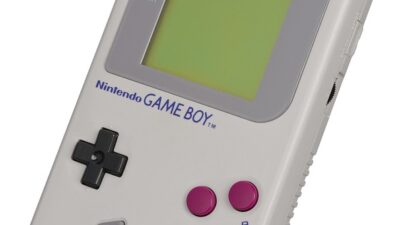In the fast-paced world of competitive gaming, having the right equipment can be the difference between a win and a loss. A gaming laptop is a cornerstone of any gaming setup, combining the power of a desktop with the portability of a laptop. However, with the market flooded with options, choosing the right specs can feel overwhelming. This guide will help you navigate the critical components to consider for a battle-ready gaming laptop.
1. Processor (CPU)
The CPU is the brain of your laptop, determining how quickly your system can process data. For gaming, you should primarily consider:
- High Core Count: Look for at least a quad-core processor. More cores can handle multitasking better and improve performance in CPU-heavy games.
- Clock Speed: A higher clock speed often translates to better performance in games. Aim for a CPU with speeds of 2.5 GHz or higher.
Popular choices include Intel’s Core i5 and i7 or AMD’s Ryzen 5 and 7 series. They offer excellent performance across a range of games and applications.
2. Graphics Card (GPU)
The GPU is arguably the most critical component for gamers. It renders images, animations, and video for your laptop’s display. Here’s what to consider:
- Dedicated vs. Integrated: A dedicated graphics card (like NVIDIA’s GTX or RTX series or AMD’s Radeon RX series) is essential for high-end gaming. Integrated graphics may struggle with newer game titles.
- VRAM: More VRAM (video RAM) allows for better performance in graphically intensive games. Look for at least 4GB for balanced gaming performance and 6-8GB for high settings.
For the best experience, opt for the latest graphics cards that support ray tracing and high resolutions.
3. Memory (RAM)
Random Access Memory is crucial for multitasking and running modern games efficiently. Here’s what you need to know:
- Minimum: 8GB of RAM is typically the minimum for gaming.
- Recommended: 16GB provides a significant performance boost and better multitasking capabilities. For power users, consider 32GB for future-proofing, especially if you plan to use the laptop for video editing or streaming.
4. Storage Solutions
Storage affects loading times and overall system responsiveness. The right storage solution can vastly improve your gaming experience:
- SSD vs. HDD: Solid State Drives (SSDs) significantly outperform traditional Hard Disk Drives (HDDs). If your budget allows, opt for an NVMe SSD for faster speeds. For gaming, aim for at least 512GB of SSD storage.
- Hybrid Options: Some laptops offer a combination of SSD and HDD, allowing for fast load times and ample space for large game libraries.
5. Display Quality
The display plays a pivotal role in your gaming experience. Consider these factors:
- Resolution: Full HD (1920 x 1080) is the standard, but if your GPU can handle it, 1440p or 4K resolutions offer stunning visuals.
- Refresh Rate: A higher refresh rate (120Hz or above) helps ensure smoother gameplay, especially in fast-paced titles. Look for laptops with at least a 60Hz panel for casual gaming, while competitive gamers should eliminate motion blur with 144Hz or higher.
6. Battery Life
Gaming takes a toll on battery life, but various gaming laptops can last long enough on a single charge for lighter gaming sessions. Look for laptops with decent battery life, keeping in mind that gaming typically requires plugging in for best performance.
7. Cooling System
Intensive gaming generates heat, and a reliable cooling system is essential to maintain performance and prolong hardware life. Check:
- Cooling Design: Laptops with multiple fans or heat pipes ensure better thermal management.
- Build Quality: Higher-end models often have better engineering to keep temperatures down while under load.
8. Port Selection
Lastly, ensure your gaming laptop offers a variety of ports for accessories and peripherals. Important ports include USB 3.1, HDMI for external displays, and Ethernet for stable internet connectivity.
Conclusion
Choosing the right specs for your gaming laptop requires careful consideration of several components. Focus on a powerful CPU, a robust GPU, enough RAM, and fast storage to ensure you’re ready to conquer any challenge. With the right combination, you’ll not only enhance your gaming experience but also invest in a laptop that stands the test of time. Happy gaming!


